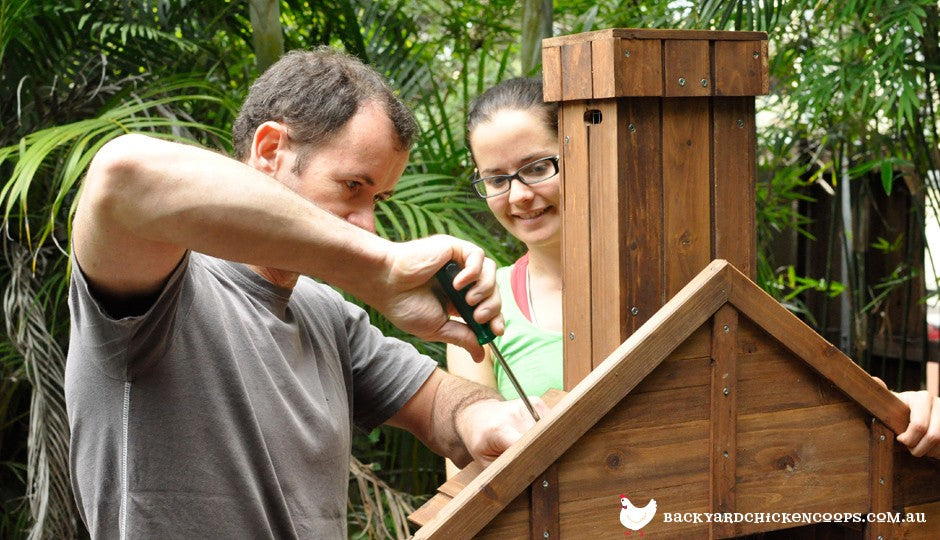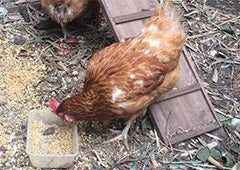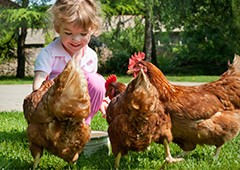Melanie and Becky are firm advocates of animal welfare and making ethical food choices. So when they heard that you can adopt ex-battery hens and give them the live they deserve, the two friends jumped at the chance to rehabilitate these animals! Their hens haven't arrived yet, but they are in the process of putting up the coop and preparing - so we chatted to them about how you adopt, and of course why it's such a good cause.
Q: Why did you decide to adopt ex-battery hens?
We are both very conscious of making ethical food choices and are completely disgusted with the treatment of hens in battery farms. We have been thinking about getting hens on and off and thought we could make a difference to these three hens and give them some quality of life. Also, by adopting battery hens we are not participating in the usual market for hens and so one way to look at it is that we have saved the lives of three male chickens. This is because for every female chicken hatched a male chicken is also hatched and these are usually killed as they are not useful for egg production.
Q: How did you find out that you can adopt ex-battery hens?
Our local Vet, Greencross Woolloongabba, had a sign up giving information about the Battery Hen Adoption Project. The adoption project has a website for more information.
Q: Was it an easy process to adopt them?
Yes. We emailed Monique at the Battery Hen Adoption Project. She gave us advice about how to prepare for the hens and then we arranged a time to pick them up. We had to wait a few weeks as they are only available for adoption just before a scheduled cull.
Q: How have you prepared for the arrival of the hens?
We researched and bought the coop then spent a morning putting it together. We also researched what to feed the hens, we are wanting to keep the produce organic so we are ordering our chicken food from Farm Fresh Organics .
Q: Have you been told about what behaviour to expect from them?
The Battery Hen Adoption Project website has a whole section of information about what to expect behaviour-wise. At first the hens are a little nervous and don't understand simple things like getting up and getting food and water as they have been cramped in a small cage their entire lives and have never been able to move around to find food. It's also important to keep their temperature reasonably constant as they have lost a lot of their feathers they don't cope well in the cold. In a battery cage the hens are not exposed to changes in temperature very much so they need to be eased into it. Roosting, another normal chicken behaviour, is difficult for them because they have never had access to a roost before and their feet are often sore and injured from being cramped in the cage. It's really heartbreaking to see what condition they're in when they leave the farm and how their normal behaviours have been so corrupted.
We're going to check in with Melanie and Becky every few weeks to see how the chickens are faring, and how they've found the experience so far. So if you're interested in adopting ex-battery hens but don't know much about the process or what it takes to look after them, follow this story and see how rewarding the process can be!




















